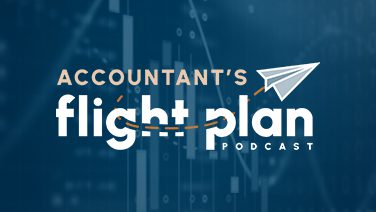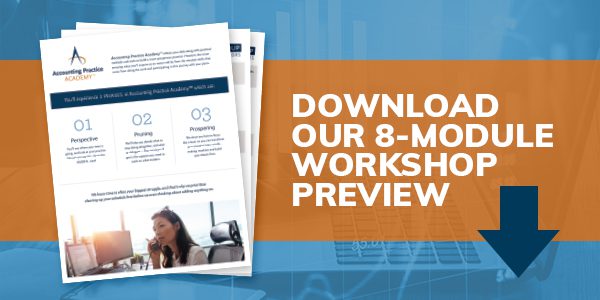CPA firms are quietly becoming some of the most sought-after acquisition targets in the lower middle market. And for good reason: recurring revenue, embedded client relationships, and the trusted role of advisor all make these businesses highly attractive to both strategic buyers and private equity.
But here’s what many CPA firm owners don’t realize: the market is moving, and the value of your firm may be far higher than you think, especially if you’re mid-career and running a seven to eight figure practice.
What We’re Seeing Right Now
Recent deals show a clear trend: while traditional valuations have been based on a multiple of topline revenue, most larger firms are beginning to close in the range of 4–7x EBITDA. High performing firms with the right profile are closing at an even larger multiples. One thing we want to make abundantly clear is that you MUST factor in the payment terms whenever discussing price. A headline price can be deceiving unless carefully considered along with how much cash was received at closing, the conditions for receiving the balance, and owner compensation post-close.
Case in point: A CPA firm we spoke with at AICPA Engage, doing just $2M in revenue recently received a headline 6x EBITDA offer and that was off-market, without formal bidding. (We don’t know the terms and are not sure if that deal has made or will make it to the closing table.) If that firm went to market, we’d expect the offer to increase significantly, driven by competitive tension and buyer demand. (Poe Group Advisors closed a PE purchased CPA firm deal in January of this year at a 9x multiple of EBITDA with 86% guaranteed payout.)
Why CPA Firms Like Yours Are Selling Well Right Now
Private equity and strategic acquirers are targeting firms that check the following boxes:
- At least $2,000,000 in annual revenue
- Recurring revenue base (monthly contracts > hourly billing)
- Strong cashflow to owner or EBITDA
- Under 2,000 owner hours
- Strong partner or owner/operator still mid-career and ready to stay on after a sale is generally preferred
- Deep client relationships and limited key-person risk
- Efficient cloud based systems
If that sounds like your firm, you’re sitting in the sweet spot.
Mid-career CPA firm owners are especially attractive because buyers want to keep the stability and credibility that comes with the owner’s ongoing involvement. Most need high-level talent. Unlike a firm led by a late-career owner looking to retire, a younger operator offers runway. (Even if you are looking to retire, several of our preferred PE buyers have deep benches and can facilitate a fast owner or partner exit.)
Price vs. Process: Should You Go to Market?
Here’s the strategic question every CPA owner should be asking:
Should I accept an off-market offer—or go to market and let the buyers compete?
A competitive and efficient M&A process allows owners to entertain an exponentially larger pool of buyers. We’ve seen it happen time and time again. A firm that gets a 4x off-market offer with less than 50% cash at closing might achieve 6x–8x+ in a competitive process with significantly better terms. For a $1M EBITDA firm, that could be a multi million dollar difference, just by running the right process. Why is this? There are several reasons, but essentially it’s a numbers game. More demand equals better price and terms. Having more buyers in the mix also allows sellers to focus more heavily on buyer-fit. We find that our clients who focus on and spend time with buyers who they feel will better serve their clients and staff not only end up more satisfied with their transactions overall, but end up with superior price and terms. Owners who sell off-market typically limit the number of discussions they have at once.
What About EBITDA and Owner Compensation?
In CPA firms, EBITDA and owner compensation are deeply intertwined. So how do buyers think about it?
Here’s a basic framework:
- Cashflow to owner includes all the money the owner takes out like salary, perks, and bonuses.
- To calculate “true” EBITDA calculation, buyers subtract a reasonable market salary to replace the owner.
For example:
- If your firm has $1M in owner cash flow and the going market salary for a managing CPA is $250K, your adjusted EBITDA is $750K.
- If you insist on staying at a $500K salary post-close, you’re reducing the earnings that justify the multiple.
The takeaway? If you plan to exit soon, it may be worth taking a lower post-closing salary to boost EBITDA and maximize your sale price. If you’re staying on longer term (5–10 years), you may negotiate more compensation and accept a slightly lower valuation in exchange for long-term earnings.
The Bottom Line
If you’re a CPA firm owner, especially mid-career with at least seven figures in revenue and strong recurring clients, now is a great time to explore your options. Off-market offers may seem strong but do not reflect the true market value of your firm. Those final contracts may also be more complex and less attractive than the initial letter of intent. (For a deeper dive, we published a whitepaper on the Pitfalls of the LOI)
Right now, we’re seeing massive buyer interest and real bidding wars when the right firms are positioned correctly. More buyers also nets you a better fit, an all the more important factor when you plan to work with the new owner.
Imagine what the market might pay before you accept the first offer.
If you’re a firm owner and you’re even considering succession, growth capital, or exit planning, let’s talk. The market is rewarding the best firms and you might be one of them.






